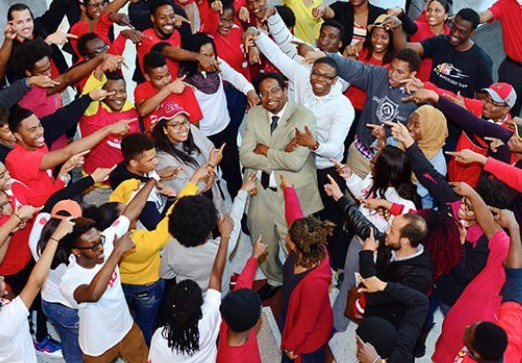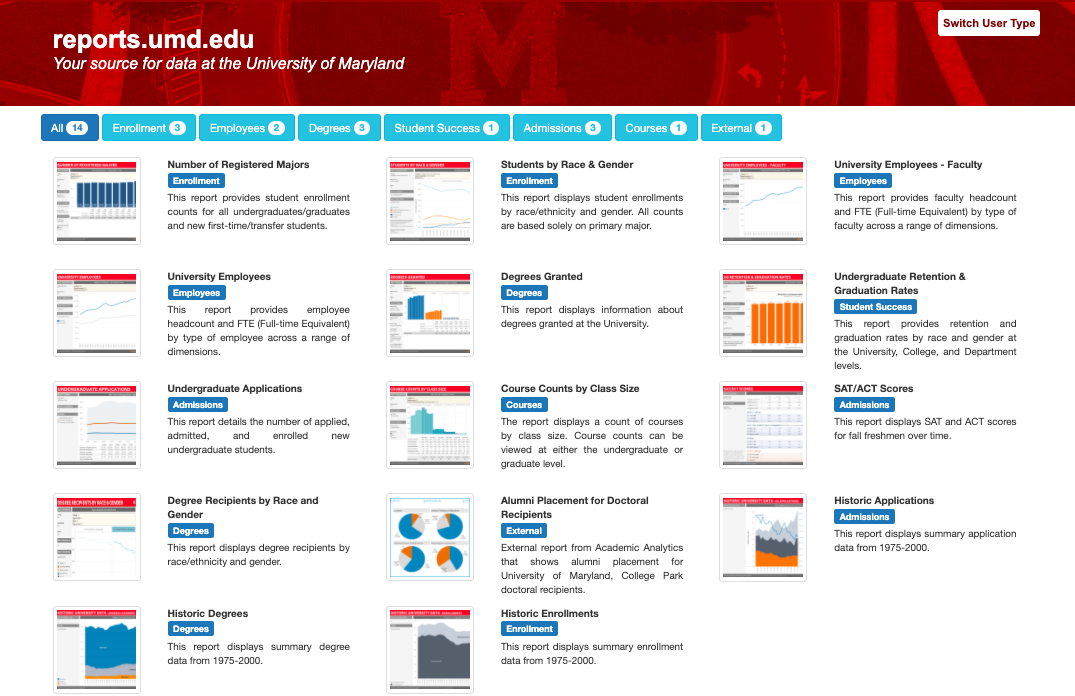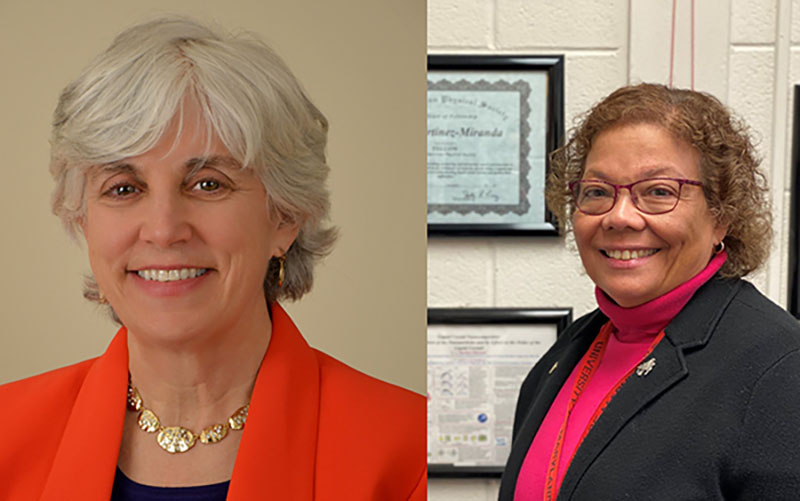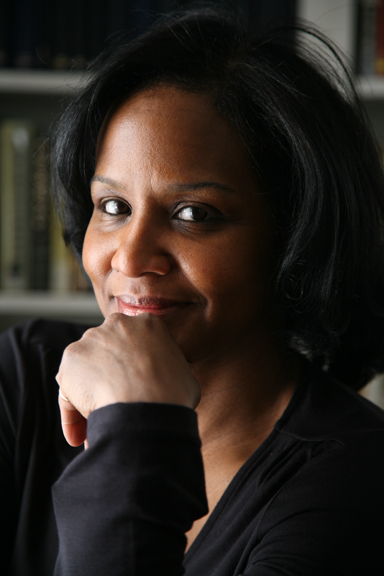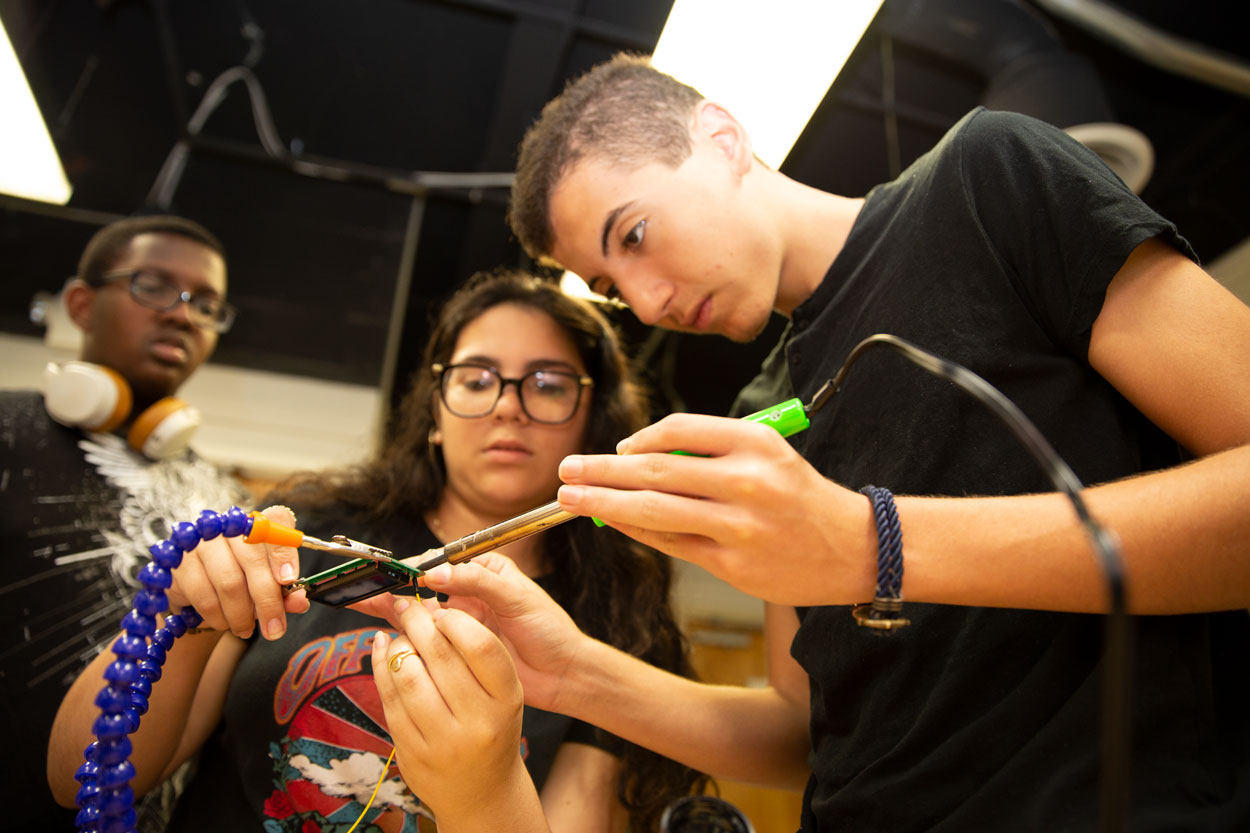The A. James Clark School of Engineering follows UMD guidelines for its Diversity Plan structure and documentation, and that then becomes a working document, evolving with the college's needs. The Clark School's most recent Diversity Plan , created by the previous council, was approved in 2016.
UMD's Office of Diversity and Inclusion serves the campus community of faculty, staff and students. Examples of what you will find at the ODI website include Campus Climate Reports, News, Events, Training for individuals and/or groups, and, in alignment with the overarching missions and goals of the Office of Diversity & Inclusion, Bias Incident Support Services (BISS) is charged with responding, educating and reporting to the campus about hate-bias incidents.
UMD Office of the President Commissions, Task Forces and Councils focus on Disability Issues; Ethnic Minority Issues; Lesbian, Gay, Bisexual and Transgender Issues; Women's Issues.
UMD University Human Resources (UHR) Affirmative Action and Equal Employment Opportunity Information Diversity Hiring Resources: UHR Manager’s Toolkit, EEO, UMD-AA Partnership Vendors
Land acknowledgment statement approved by Piscataway Tribe elders - "At the office of Diversity & Inclusion, we believe it is important to create dialogue to honor those that have been historically and systemically disenfranchised. So, we acknowledge the truth that is often buried: We are on the ancestral lands of the Piscataway People, who were among the first in the Western Hemisphere. We are on indigenous land that was stolen from the Piscataway People by European colonists. We pay respects to Piscataway elders and ancestors. Please take a moment to consider the many legacies of violence, displacement, migration, and settlement that bring us together here today." Please take time to learn more about the Piscataway Conoy people and the lands that UMD inhabits.
DEI Leadership for the Clark School
Hugh Bruck - Diversity Officer, A. James Clark School of Engineering
Rosemary Parker – Director, Center for Minorities in Science and Engineering (CMSE)
Paige Smith – Director, Women in Engineering (WIE)
Akua Asa-Awuku - Professor, Associate Dean for Diversity and Equity
Pamela Abshire - ADVANCE Professor for the A. James Clark School of Engineering
Alisa Morss Clyne - Fischell Dept of Bioengineering Associate Chair, Diversity, Equity, and Inclusion
Clark School Resources
The Center for Minorities in Science and Engineering provides academic support services and outreach programs designed to recruit, retain, and graduate African American, Hispanic American, and Native American engineering students.
The Women in Engineering program is dedicated to the recruitment and retention of women engineering students at the pre-college, undergraduate, and graduate levels.
Student Societies
Supporting the efforts of CMSE and WIE, and providing valuable assistance to the Clark School, are three student societies — the Black Engineers Society, the Society of Hispanic Engineers, and the Society of Women Engineers.
The Black Engineers Society (BES) is the student chapter of the National Society of Black Engineers at the University of Maryland. Their primary focus is to recruit, retain and release qualified minorities into fields of computer science, engineering, mathematics and physical sciences.
The goal of the Society of Hispanic Professional Engineers (SHPE) is to enable our students to find careers in STEM, to provide professional development for our members, expand our members networks while providing a sense of inclusion, improve our neighborhoods through community service, promote STEM awareness among the youth in the community, and to encourage middle and high school students to pursue degrees in STEM.
The Society of Women Engineers (SWE) is a program within the Clark School run by faculty, graduate, and undergraduate students. It is dedicated to the recruitment and retention of women engineering students at the pre-college, undergraduate, and graduate levels.
In addition, oSTEM: OUT! In Science, Technology, Engineering, and Mathematics UMD oSTEM Chapter is a student organization dedicated to fostering the professional and personal growth of LGBT students in STEM fields, and is inclusive of those who are historically underrepresented with respect to gender, gender identity, and ethnic background.
Other College-Wide Student Societies -
• Alpha Omega Epsilon, Engineering Sorority (Upsilon Chapter)
• American Society of Engineers of Indian Origin (ASEI)
• Engineering Student Council (ESC)
• Engineers Without Borders (EWB)
• Engineering World Health (EWH)
• Sigma Phi Delta Social/Professional Engineering Fraternity (Beta-Iota Chapter)
• Society of Asian Scientists and Engineers (SASE) - UMD Chapter
• Tau Beta Pi National Engineering Society (TBP)
• Theta Tau Professional Co-ed Engineering Fraternity
See More at College of Engineering Societies and Clubs
Clark School Programs
ClarkLEAD is an onboarding and leadership experience for new engineering students in the A. James Clark School of Engineering at the University of Maryland. All new Clark School students, both first year and transfer students, are expected to attend. ClarkLEAD will spark conversations around leadership, diversity and inclusion, and teamwork, as well as the importance of these for engineering and engineering design. The program will also provide an overview of the Clark School values and resources.
The Clark School Ambassadors are a group of current undergraduate engineering students with a diverse set of experiences at the University of Maryland. The Clark School Ambassadors participate in an array of outreach and recruitment activities, including local high school events such as science fairs and career days, campus-wide open house programs, and host prospective students on campus.
RISE Leadership Academy RISE (Research, Instruction, and Service in Engineering) will brand the leadership ability of select students within the engineering college. Students with exceptional leadership potential will be admitted to the academy and will be able to demonstrate, through the program, their leadership abilities.
Clark School Scholarship Database
A number of scholarships are available, both externally and internally, and may be found in the Clark School Scholarship Database.
Career Development
Clark School Diversity and Inclusion Resources for Career Development may be found here - https://eng.umd.edu/diversity-inclusion-resources-career-development
Campus Resources
UMD resources available for students include:
Accessibility and Disability Services (ADS). The ADS Office is staffed by dedicated professionals who are available to assist, consult, support, and advocate on behalf of individuals requesting disability services. Established in 1986, UMD's President’s Commission on Disability Issues is responsible for advising the President on issues of concern to people with disabilities and bringing awareness to the campus community on disability and equal access issues.
International Student and Scholar Services (ISSS) assists international students with transitioning to the U.S., advising on immigration requirements, and making the most of their academic experience here. ISSS also assists the campus community involved with international educational exchange in the process of bringing international visitors to campus, or in sending Maryland faculty and students abroad.
Multicultural Involvement Community Advocacy (MICA) supports all students at the University of Maryland through their work which focuses on: providing opportunities and spaces for all students that affirm identities; building inclusive communities among diverse members; creating social change - locally, nationally and globally.
Nyumburu Cultural Center focuses on African-American students and students of the African Diaspora, both undergraduate and graduate; fostering greater involvement of these students in campus initiatives and instilling in these students an informed consciousness of their African-American, Caribbean, and African heritages. Nyumburu is an excellent place for cultural exchange, intersectionality, and collaborations, enabling the University to make greater strides in achieving genuine cultural pluralism.
Office of Lesbian, Gay, Bisexual and Transgender Equity envisions the University as a fully equitable community that empowers innovators and agents of social justice for lesbian, gay, bisexual, transgender, and queer people. The LGBT Equity Center serves University of Maryland students, staff, faculty, and alumni of all gender identities and sexual orientations.
Office of Multi-Ethnic Student Education (OMSE) offers a variety of services and programs to enhance the academic experience of undergraduate students of various underrepresented ethnic backgrounds at the University, working toward building a positive and sensitive community of learners.
University Chaplains work collectively in an open, inclusive environment of many cultures and faiths, to serve the spiritual needs of the University. The Chaplains demonstrate a unity that contributes to the rich diversity and quality of life at the University and in the community.
UMD recognizes the extraordinary contributions of members of our armed services, at Veteran Student Life, there are a variety of resources that serve veterans and those who are military-connected on campus, including STEM Tutoring.
The University also provides general, specialized counseling services related to diversity and inclusion.
Family Care Resources
The Family Care Resource & Referral Service at the University of Maryland was created to assist University of Maryland faculty, staff, and students with their family care needs and concerns
Family Services site contains information on Lactation Rooms On Campus and Changing Stations On Campus, as well as a private listserv for parents who work or study at UMD.
Campus Advocates Respond and Educate (CARES)
CARE to Stop Violence serves as a free and confidential resource to address incidents of sexual assault, domestic violence, dating violence, stalking, and sexual harassment affecting all genders of the University community.
For Graduate Students
The Office of Graduate Diversity and Inclusion (OGDI) offers unique resources for graduate students.
Clark School Resources
Are you in search of Clark School diversity-related data/information? Below is a list of contacts who might be able to help.
Rosemary L. Parker
Director, Center for Minorities in Science & Engineering
rparker@umd.edu
Paige Smith
Director, Women in Engineering
pesmith@umd.edu
Akua Asa-Awuku
Professor, Associate Dean for Diversity and Equity
asaawuku@umd.edu
Hugh Bruck
Associate Dean for Faculty Affairs and Clark School Diversity Officer
bruck@umd.edu
For general Clark School Faculty and Research administrative resources, please visit ClarkNet.
Campus Resources
The ADVANCE program works to support the recruitment, retention, advancement and professional growth of women and under-represented minority faculty at the University of Maryland. Initially supported by NSF, they are now supported through a campus-wide investment in faculty development and inclusive excellence by the Provost's Office, Office of Diversity & Inclusion, Office of Research, and all college deans.
UMD is an Institutional Member of the National Center for Faculty Development & Diversity.
As an institutional member, all faculty members, postdocs, and graduate students at the University have free access to the following member resources: Weekly Monday Motivator; Monthly Core Curriculum Webinars; Monthly Guest Expert Webinars; Access to Multi-Week Courses; Access to Dissertation Success Curriculum for graduate students; Private Discussion Forum; for peer-mentoring, problem-solving, & moderated writing challenges; Monthly accountability buddy matches; Access to 14-Day Writing Challenges; Access to the Member Library that includes past webinar materials, referrals, and readings.
Consortium on Race, Gender, and Ethnicity (CRGE) is a university-wide, interdisciplinary research organization and pedagogic unit that collaborates with departments and colleges across the University of Maryland campus to promote faculty and graduate student development.
Office of Lesbian, Gay, Bisexual and Transgender Equity envisions the University as a fully equitable community that empowers innovators and agents of social justice for lesbian, gay, bisexual, transgender, and queer people. The LGBT Equity Center serves University of Maryland students, staff, faculty, and alumni of all gender identities and sexual orientations.
Office of Postdoctoral Affairs (OPA) was established to provide the postdoctoral community with information, training, mentoring, and services in support of career development.
The Black Faculty and Staff Association (BFSA) provides a comprehensive and representative Black perspective on institutional, societal and programmatic development on campus. The BFSA encourages and supports the efforts of upward mobility of minority faculty and staff at all levels of the University, and offers both leadership and supportive services (administrative and academic) to facilitate the delivery of efficient and effective services to the University.
Disability Accommodation
The University of Maryland is committed to creating and maintaining a welcoming and inclusive educational, working, and living environment for people of all abilities. The University of Maryland provides reasonable accommodations to qualified individuals. Faculty members who are seeking reasonable accommodations in the workplace should submit the form found at the Faculty Accommodation Request Procedure web page https://faculty.umd.edu/main/resources/disability-accommodation#request. There is also information regarding Parking Accessibility at this web page.
The Faculty Staff Assistance Program (FSAP) assists faculty and staff with a variety of problem areas, including job difficulties; alcohol and drug problems; marital and family problems; emotional distress (anxiety, depression, stress-related disorders, etc.); legal, financial and a variety of other concerns.
Teaching and Learning Transformation Center (TLTC)
The TLTC inspires and supports effective, engaging, efficient, and equitable teaching innovations among the University's instructors and assistants.
University Chaplains work collectively in an open, inclusive environment of many cultures and faiths, to serve the spiritual needs of the University. The Chaplains demonstrate a unity that contributes to the rich diversity and quality of life at the University and in the community.
Spouses, Partners, and Family Care Services
The Family Care Resource & Referral Service at the University of Maryland was created to assist University of Maryland faculty, staff, and students with their family care needs and concerns.
Family Services site contains information on Lactation Rooms On Campus and Changing Stations On Campus, as well as a private listserv for parents who work or study at UMD.
Campus Advocates Respond and Educate (CARES)
CARE to Stop Violence serves as a free and confidential resource to address incidents of sexual assault, domestic violence, dating violence, stalking, and sexual harassment affecting all genders of the University community.
SELECT RESOURCES FOR FACULTY
Leading Diverse and Inclusive Labs:
Resources from “Leading a Diverse and Inclusive Lab” seminar - links to the recording, survey and additional resources below -
Recording: https://umaryland.zoom.us/rec/play/hE3JalryWNR_ru0XVfWw0fC_vQU7IOvtGx8uGpSFa7FBiKrKQhfit5ZiPeMolgjF9x24a9lCYKgCaH2z.IH1VZ2wpjva1daHq?startTime=1620738165000&_x_zm_rtaid=hDS5JLgoQj2M8Ge9jy56YA.1623854054231.4384a94d832e63e909067954140f7dac&_x_zm_rhtaid=393
NIH Diversity toolkit: https://diversity.nih.gov/toolkit
Why Diverse Teams are Smarter: https://hbr.org/2016/11/why-diverse-teams-are-smarter
Campus Resources
Established in 1986, UMD's President’s Commission on Disability Issues is responsible for advising the President on issues of concern to people with disabilities and bringing awareness to the campus community on disability and equal access issues. This Accessibility Hub provides information and resources for members of the University community, including students, faculty, staff, and visitors.
The Black Faculty and Staff Association (BFSA) provides a comprehensive and representative Black perspective on institutional, societal and programmatic development on campus. The BFSA encourages and supports the efforts of upward mobility of minority faculty and staff at all levels of the University, and offers both leadership and supportive services (administrative and academic) to facilitate the delivery of efficient and effective services to the University.
The Faculty Staff Assistance Program (FSAP) assists faculty and staff with a variety of problem areas, including job difficulties; alcohol and drug problems; marital and family problems; emotional distress (anxiety, depression, stress-related disorders, etc.); legal, financial and a variety of other concerns.
Office of Lesbian, Gay, Bisexual and Transgender Equity envisions the University as a fully equitable community that empowers innovators and agents of social justice for lesbian, gay, bisexual, transgender, and queer people. The LGBT Equity Center serves University of Maryland students, staff, faculty, and alumni of all gender identities and sexual orientations.
University Chaplains work collectively in an open, inclusive environment of many cultures and faiths, to serve the spiritual needs of the University. The Chaplains demonstrate a unity that contributes to the rich diversity and quality of life at the University and in the community.
Spouses, Partners, and Family Care Services
The Family Care Resource & Referral Service at the University of Maryland was created to assist University of Maryland faculty, staff, and students with their family care needs and concerns.
Family Services site contains information on Lactation Rooms On Campus and Changing Stations On Campus, as well as a private listserv for parents who work or study at UMD.
Campus Advocates Respond and Educate (CARES)
CARE to Stop Violence serves as a free and confidential resource to address incidents of sexual assault, domestic violence, dating violence, stalking, and sexual harassment affecting all genders of the University community.
